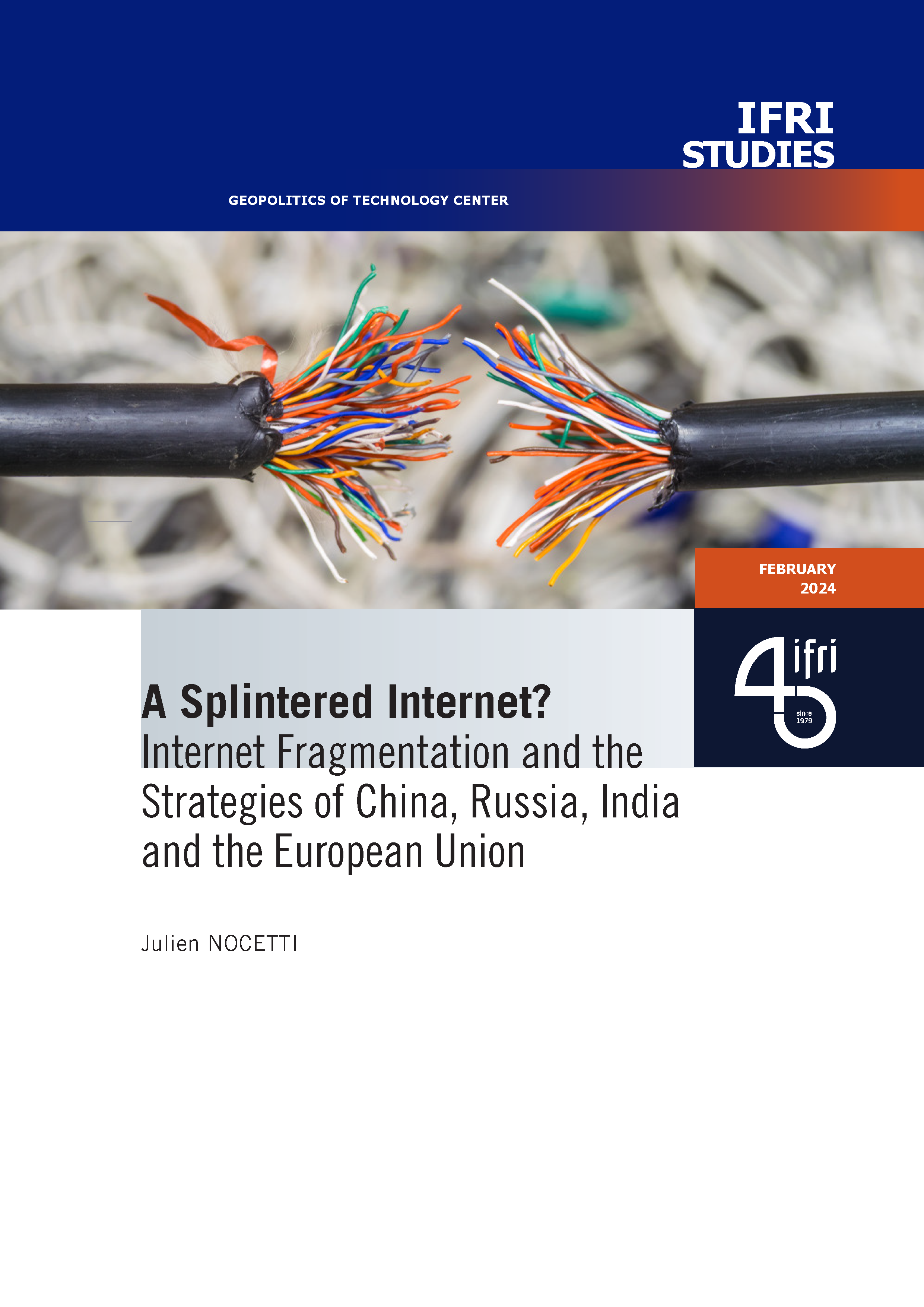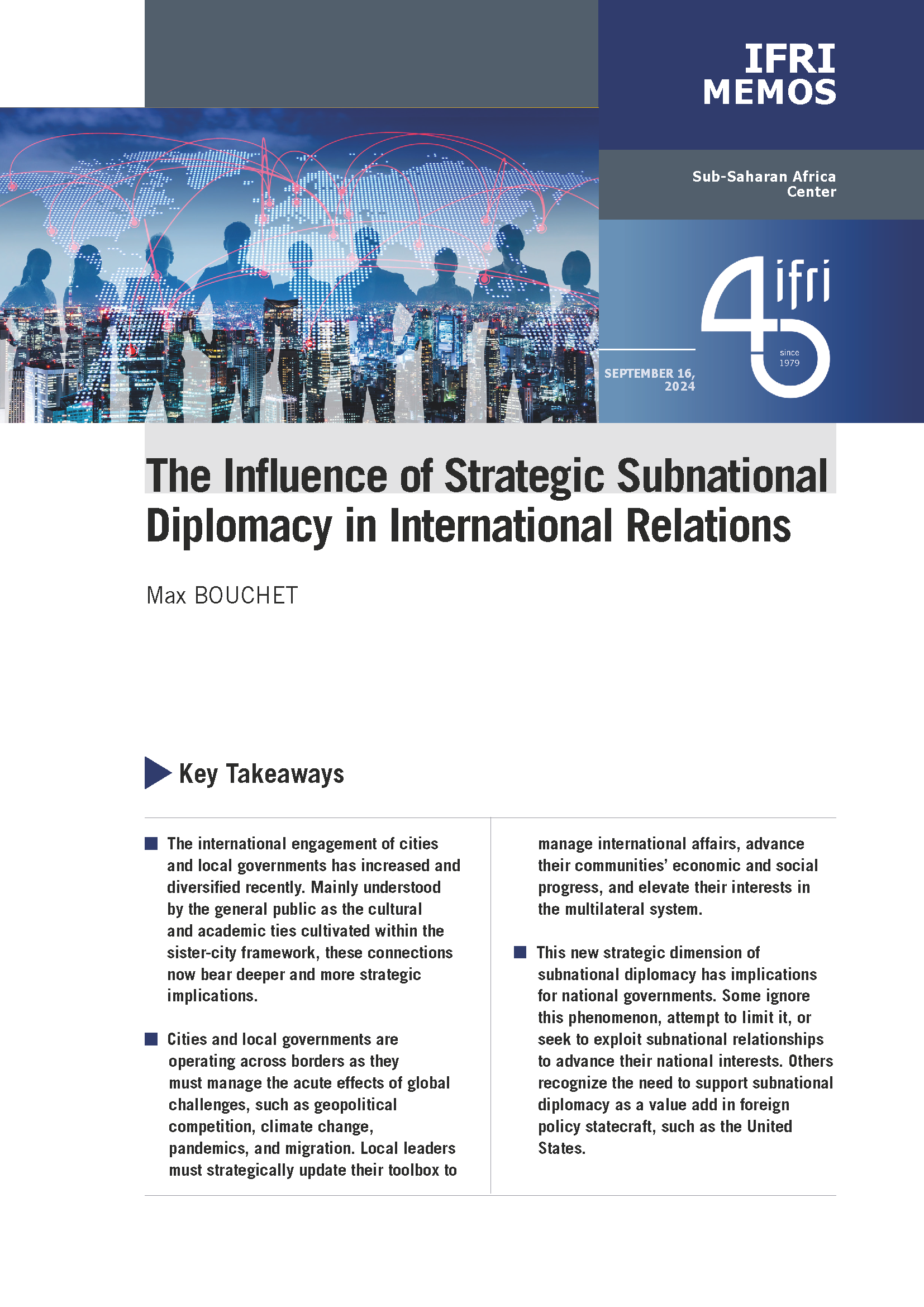A Splintered Internet? Internet Fragmentation and the Strategies of China, Russia, India and the European Union

From the Covid-19 pandemic to the ramifications of Russia’s full-scale invasion of Ukraine, international events are fueling fears of an accelerated fragmentation of the global Internet.

Internet “fragmentation” refers to the idea of a crumbling of the network of networks, or even the secession of certain parts of the Internet. It describes the segmentation of the global network and its tendency towards regionalization. This study examines how major powers, through their domestic and foreign policies, are likely to accelerate this fragmentation, whether voluntarily or not. The role of private companies, notably the major digital platforms, is also considered.
The study begins by analyzing the different types of fragmentation: technical, (geo)political and commercial. Technical fragmentation results from decisions which, deliberately or not, permanently or temporarily, break or limit digital connectivity between one part of the Internet and the rest of the network. Proposals for alternative protocols and standards to those already in use worldwide fall into this category. (Geo)political fragmentation stems from a variety of practices: data localization, deliberate Internet shutdowns, policies aimed at excluding Chinese companies from all Internet layers, and, in particular, from connectivity infrastructures, and so on. At the same time, since the 2010s, the idea of economic and commercial fragmentation has emerged, driven by protectionist strategies on the part of national authorities, the spread of proprietary software and hardware, and the exploitation of captive user data by major digital platforms. By building their own infrastructure, platforms create their own network while becoming the main gateway to the global Internet.
The study underlines that while U.S. diplomacy has long supported the global nature of the Internet infrastructure as part of its national interests, the instrumentalization of its privatized backbone now represents one of the key determinants of the dynamics of “fragmentation”. The study then examines the policies pursued by China, Russia, India, and the European Union, whose initiatives are driven by very diverse goals and are also reconfiguring the Internet. Indeed, these initiatives are manifold, reflecting the distinct visions of digital capitalism held by these state actors.
This publication is also available in French.
Download the full analysis
This page contains only a summary of our work. If you would like to have access to all the information from our research on the subject, you can download the full version in PDF format.
A Splintered Internet? Internet Fragmentation and the Strategies of China, Russia, India and the European Union









